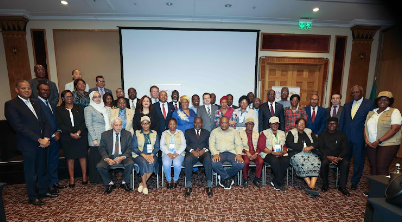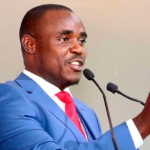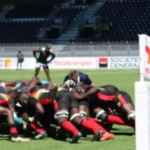Former President Uhuru Kenyatta is currently leading the African Union Election Observation Mission (AUEOM) in South Africa.
Throughout his mandate, Uhuru has engaged in meetings with various stakeholder groups, aiming to ensure transparent, fair, and peaceful electoral processes in what South Africans have described as defining elections.
During a meeting with the African Diplomatic Corps on Tuesday, discussions centered on strengthening the commitment to democracy and stability across the African continent. Uhuru emphasized the importance of diplomatic channels in fostering a secure environment for voters and ensuring the integrity of electoral outcomes.
He also highlighted the joint efforts of African nations to support South Africa during this pivotal moment.
In preparation for Wednesday’s National and Provincial Elections, Uhuru participated in a pre-election debriefing and peer-exchange session with heads of International Electoral Observation Missions (IEOMs).
Additionally, he met with the National Operational and Intelligent Structure (NATJOINS), led by South African Police Service Major General Mashadi Selepe, and representatives from the South African Council of Churches.
Other engagements included meetings with Media Monitoring Africa, South Africa’s Minister of Home Affairs, Aaron Motsoaledi, and the Commissioners of the Electoral Commission of South Africa, led by Chairman Mosotho Moepya.
Throughout these interactions, Uhuru reiterated his commitment to maintaining a neutral stance in South Africa’s general election, underscoring the importance of impartial observation and support for democratic processes.
“We are here to observe the people of South Africa exercise their democratic right, we have no preconceived outcomes or anything,” he said in a press conference.
“We just want to see the people of South Africa having an opportunity to express their will…and for us, this is the job that we have.”
South Africans are preparing to participate in what is considered the most significant election since the end of apartheid in 1994. With over 27 million registered voters, the election underscores the increasing political division following three decades of democracy.
A total of 70 parties and 11 independent candidates are competing in the election, which will determine the composition of the new Parliament and nine provincial legislatures.



